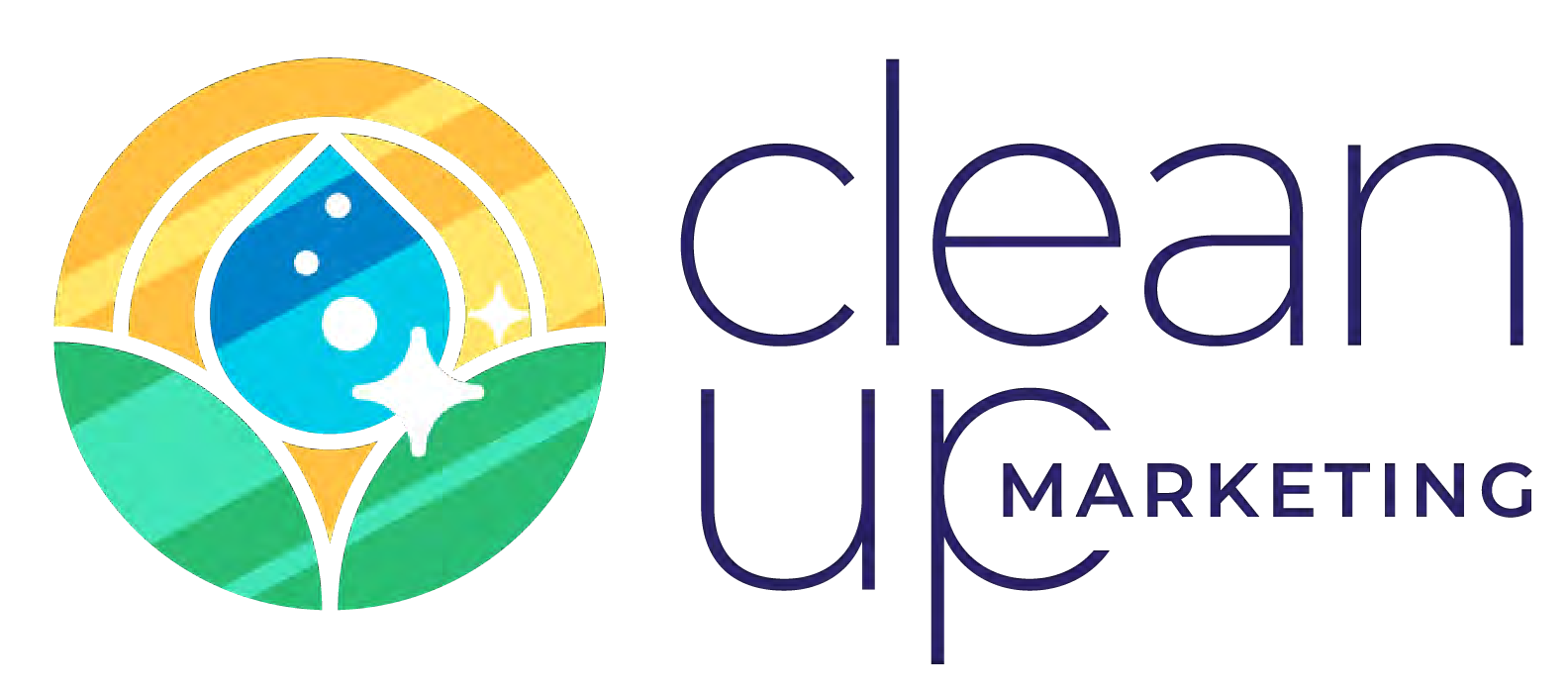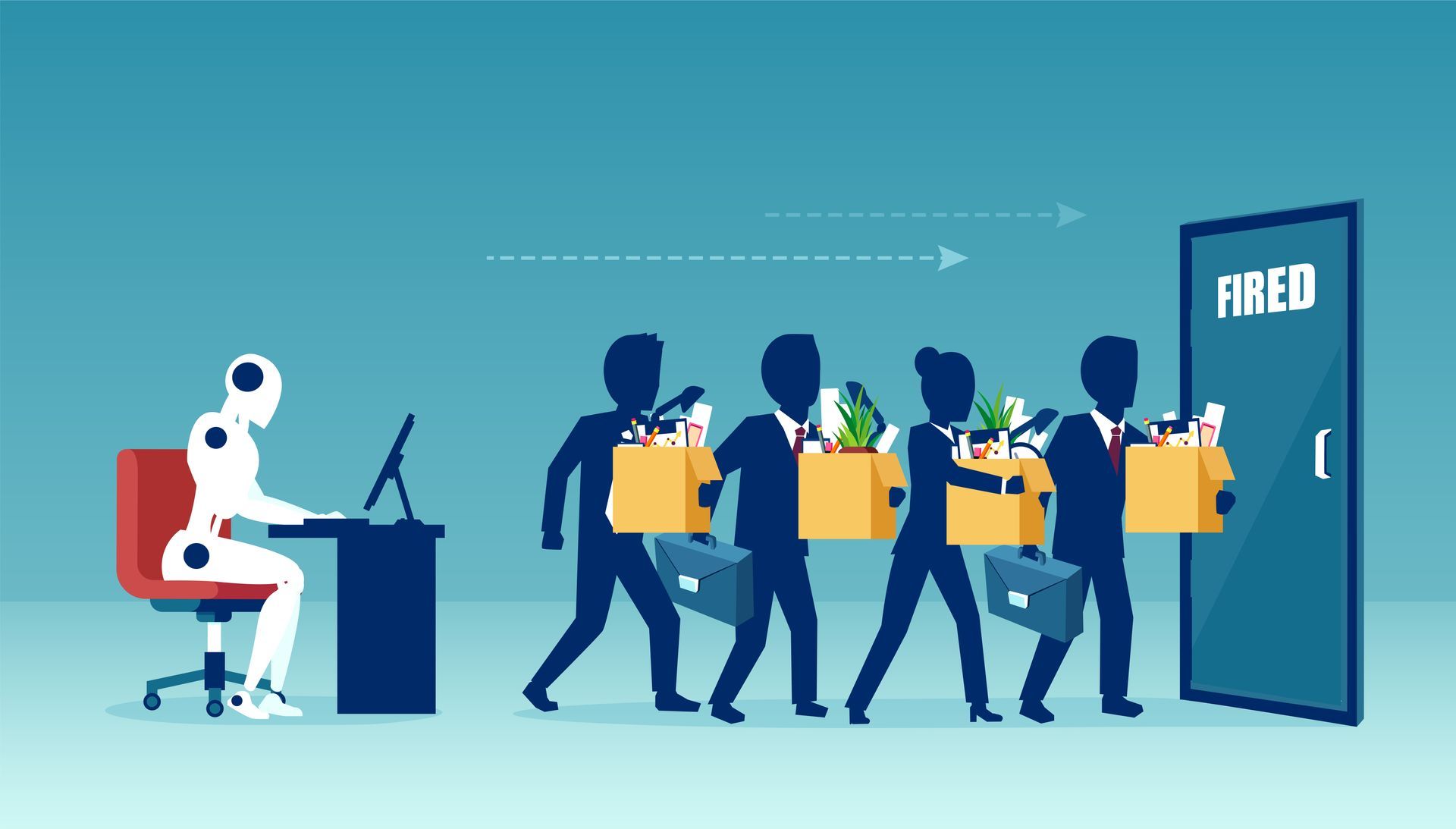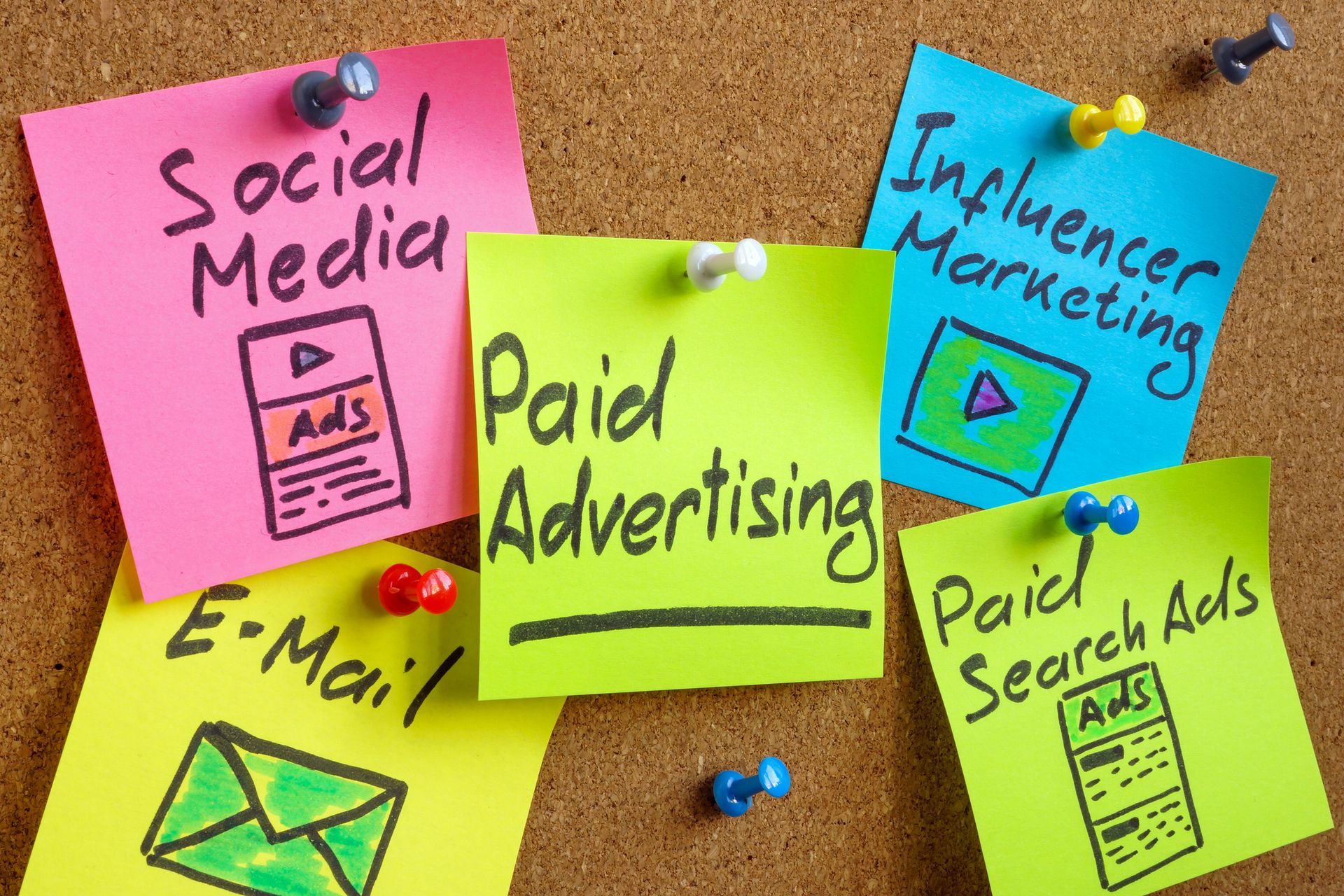Why Your Email List Is Still the Most Important Communication Tool
Michael Grossman • February 12, 2025
In a world dominated by social media algorithms, flashy ads, and ever-evolving digital platforms, one communication tool has consistently stood the test of time: the email list.
While newer technologies promise instant reach and viral potential, email marketing remains a cornerstone for meaningful engagement, particularly for cleantech companies navigating the complexities of building awareness and trust in a competitive industry.
Why is this old-school tool still so essential? Let’s dive into why your email list should remain your most treasured asset, explore how emerging trends enhance its power, and provide actionable insights for leveraging email marketing to its full potential.
The Value of an Email List: Direct, Personalized, and Owned
1. Direct Connection with Your Audience: An email list provides a direct line of communication with your audience, free from intermediaries like social media algorithms. Unlike social platforms where your content is filtered, email ensures that your message lands directly in your subscribers’ inboxes.
• For Cleantech Companies: This is especially critical for sharing detailed, technical information about your innovations, educating stakeholders, and nurturing long-term relationships.
2. Personalization Drives Engagement: Modern email tools allow for highly personalized messages. By segmenting your audience and tailoring content to their needs, you can achieve higher engagement rates than other communication channels.
• Example: A cleantech startup targeting B2B clients can send tailored case studies to potential investors or first customers while delivering sustainability tips to broader audiences.
3. You Own the Channel: Social media platforms and search engines have repeatedly changed their rules. Twitter is the latest high-profile
example , impacting the visibility and reach of the entire climate-focused community. An email list is your asset, giving you complete control over how and when you communicate.
Emerging Trends Enhancing Email Marketing
While email marketing remains rooted in its fundamentals, emerging trends are supercharging its effectiveness for cleantech companies aiming to stay ahead of the curve.
1. AI-Powered Personalization: Artificial intelligence (AI) is transforming email marketing by enabling hyper-personalization. AI can analyze subscriber behavior to send tailored messages with the right content at the right time.
• Application: A cleantech company can use AI to recommend relevant content based on a subscriber's past interactions, such as whitepapers or product updates.
2. Interactive Email Content: Emails are becoming more dynamic with features like embedded polls, videos, and clickable infographics. Interactive content increases engagement and allows recipients to act directly from their inboxes.
• Example: A sustainability-focused company could embed a kinesthetic tool, such as a carbon footprint calculator, in an email, encouraging users to engage with the brand.
3. Sustainability Messaging: As consumers and businesses increasingly prioritize sustainability, emails with eco-friendly messaging build trust and brand loyalty.
4. Automation and Workflows: Email automation tools allow companies to build sophisticated workflows, nurturing leads through tailored sequences.
• For Cleantech: Automation can guide potential investors or clients through a series of educational emails, building confidence in your brand’s expertise.
5. Compliance with Privacy Laws: With regulations like GDPR and CCPA, email marketing has become a trusted channel for maintaining customer privacy while delivering personalized content.
Why Email Works for Cleantech Companies
1. Educating a Complex Audience: Clean technology, whether hard tech or software, requires a more thoughtful explanation than consumer packaged goods. Emails provide a space for in-depth communication, whether it’s value propositions, business use cases, or product descriptions.
2. Building Relationships with Stakeholders: For cleantech startups, fostering relationships with investors, partners, and customers is crucial. Regular email updates help maintain engagement and ensure your company stays top of mind amidst a blizzard of information that besieges us daily.
3. Promoting Events and Initiatives: Emails are ideal for promoting events like webinars, product launches, or sustainability campaigns. They allow you to provide all necessary details in one place, with clear calls to action.
Strategies for Maximizing Your Email Marketing Efforts
1. Focus on Value-Driven Content: Ensure that every email provides value to your audience. This could be through insights, educational content, or exclusive offers. Avoid talking at your audience. Instead, invite them into a conversation with you in a way that’s helpful to them. I call it “Beyond Transactional.”
2. Segment Your Audience: Not all subscribers have the same needs. Segment your list to ensure the right people receive the right message. For instance:
3. Optimize for Mobile: With most emails now opened on mobile devices, ensure your campaigns are mobile-friendly. Use responsive design and concise, impactful content.
4. Incorporate Storytelling: Emails that tell a compelling story about how your founder realized that a problem needed to be solved, testimonials from clients or customers who’ve benefited from your technology, or even volunteer work highlighting your mission-driven company's origin story will enhance your reputation and increase long-term loyalty.
5. Test and Analyze: Subject lines and headings significantly impact whether your recipients open your email. Urgency and relevance in the subject line will increase your open rates. Conversely, a somnambulant title like “Newsletter” is an open invitation for your audience to hit the delete button.
Every audience is different, and no one formula guarantees that your email will be opened. That's why it’s essential to continuously test various elements of your email campaigns, such as subject lines, visuals, and CTAs. Use analytics to refine your strategy and improve results.
Avoiding Common Email Marketing Pitfalls
While email marketing is powerful, it’s crucial to steer clear of common mistakes:
• Neglecting Consistency: Irregular email schedules can lead to disengagement. Stick to a predictable cadence, whether weekly, biweekly, or monthly.
• Overloading with Information: Keep your emails focused and concise—link to additional resources rather than cramming everything into the email.
• Ignoring Compliance: Ensure your campaigns comply with privacy laws and include clear options for subscribers to manage their preferences.
Conclusion: Why Your Email List is Still King
For cleantech companies, email is more than a communication channel; it’s a bridge to educating audiences, building trust, and inspiring action.
Embracing emerging trends like AI personalization, interactive content, and automation elevates your brand by delivering value while segmenting your list and integrating storytelling will transform your email list into a powerhouse for growth and impact.
Your audience—and the planet—will thank you.
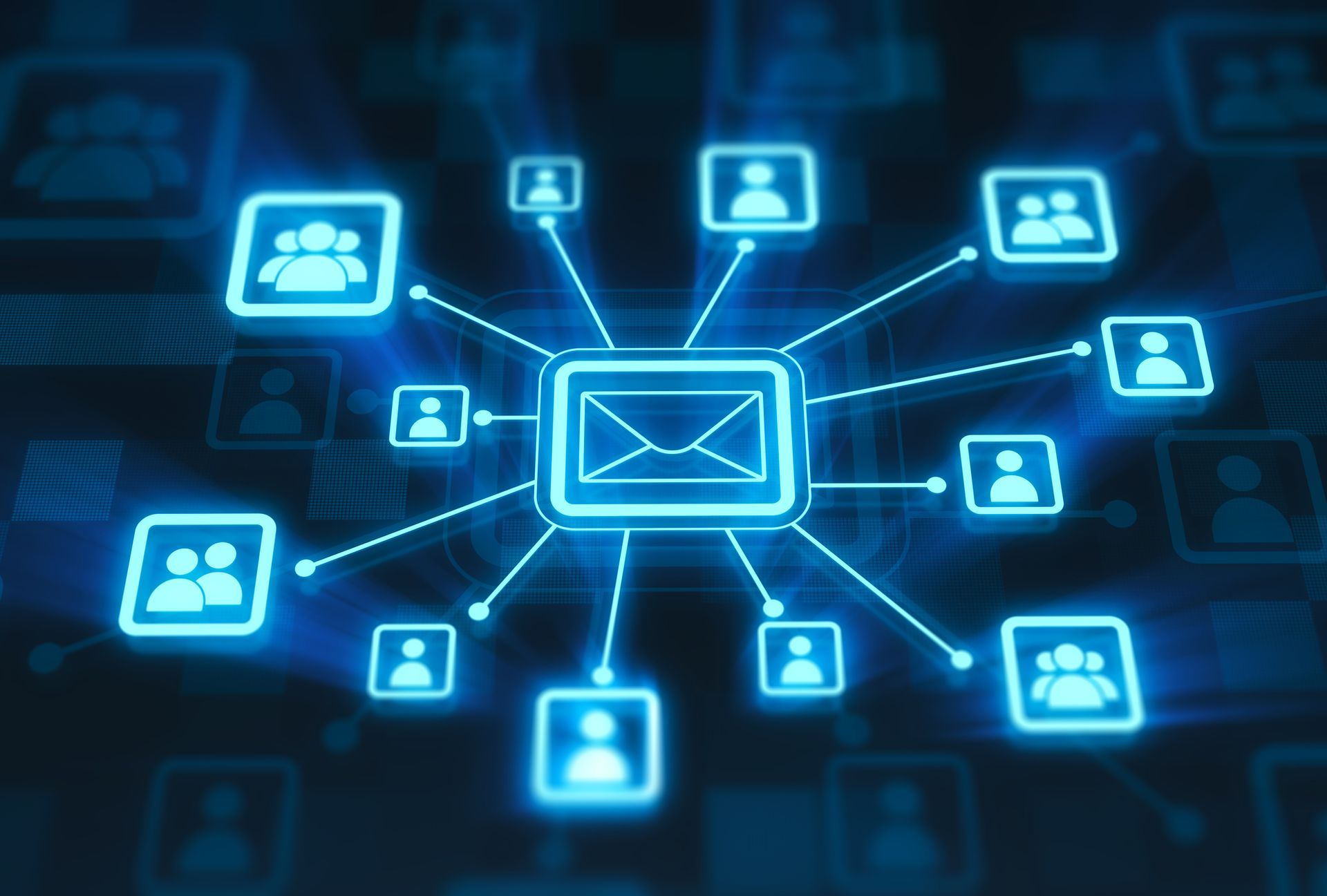
How To Effectively Communicate With Email Sales funnels are notoriously long in cleantech. The customers are very picky and often risk averse because the stakes of buying are so much higher than in a traditional B2C transaction. Building those bonds of trust over months and years requires constant interaction to create a comfortable space for a buyer to integrate your software, your feedstock, or your technology. That’s why a carefully targeted, regularly scheduled email drip funnel is crucial to your success. But effective email communication is more than hitting "send" on a message. It requires strategy, clarity, and a focus on delivering value to your audience. Why Effective Email Communication Matters In the digital age, there’s no one “right way” to target an audience because we live in a disaggregated media landscape. However, email remains an essential channel for engaging with diverse audiences, including investors, customers, and policymakers. Its unique benefits include: • Direct Reach: Unlike social media, email ensures your message lands directly in someone’s inbox, making it a personal and reliable communication method. • Scalable Personalization: With the right tools, emails can be tailored to individual recipients, increasing their relevance and impact. • High ROI: Email marketing boasts an average return of $36 for every $1 spent, making it one of the most cost-effective communication channels.(Juan, can you find a hyperlink to support this claim?) For cleantech companies, effective email communication can help: • Simplify complex technical information into digestible bits • Strengthen relationships with key stakeholders. • Build confidence among investors • Drive action on critical initiatives, like building community support for a clean energy project or piece of legislation. Keys to Effective Email Communication 1. Understand Your Audience: Before crafting your email, take time to understand your audience’s needs, interests, and challenges. Cleantech companies often communicate with a range of stakeholders, from engineers to sustainability advocates. Tailoring your message ensures it resonates with each group. • Pro Tip: Segment your email list based on factors like industry, role, and stage in the buyer’s journey to deliver more targeted content. 2. Craft a Compelling Subject Line: Your subject line is the first impression of your email—it determines whether the recipient will open it. You should spend at least 30% of the time it takes you to write the content of your email on your subject headline. Effective subject lines are clear, concise, and action-oriented. Some best practices include: • Personalization—use the company name • Highlight what competitors are doing • Fear of missing out (FOMO) • Use a specific number, whether it’s how much your software saves, or how much more efficient your lithium-ion battery is than the industry standard • Examples: o “How Our Solar Panels Save Businesses $10,000 Annually” o “3 Sustainability Trends You Need to Know in 2024” • Emerging Trend: Use AI tools to test and optimize subject lines for higher open rates. 3. Focus on Value: Try to create a “You-Orientation.” What does that mean? Imagine yourself as the recipient of your email. Why would they want to read it? What’s in it for them? Most emails I see talk “at” an audience rather than invite them to have a conversation. Sure, everyone wants to share their good news, especially in an industry that moves at glacial speed (even while glaciers are melting). But instead of announcing the close of your latest fundraising round and bragging about who is backing your company, ask yourself first, “Why should my audience care?” Instead of a “brag-a-log” email, let your audience know how your news impacts them. Even better, ask them for feedback on what’s important to them. We all have cluttered inboxes. Help insure yours doesn’t go straight to the trash by connecting them to your brand. • Pro Tip: Share insights about industry trends, offer exclusive reports, or provide practical tips for adopting sustainable practices. 4. Keep it Clear and Concise: Long-winded emails are less likely to hold your reader’s attention. Aim for brevity without sacrificing clarity. Abraham Lincoln’s Gettysburg Address was 272 words proving that more isn’t necessarily better. My rule of thumb is read your email aloud before sending it. Stop reading when you reach 30-seconds. Delete everything else. You don’t need to cram all of your news into one email. That’s why marketers use the term “drip funnel.” Using another historical analogy, civil rights protesters were blasted by firehoses. It wasn’t a good look then, and it’s no more effective today. Email is about a friendly conversation, which is also why you should use short paragraphs, bullet points, and headings to break up text. • Pro Tip: Use visuals like infographics or charts to simplify complex information. 5. Use a Strong Call-to-Action (CTA): Every email should have a clear purpose, whether it’s driving traffic to your website, encouraging event registration, or downloading a report. Include a strong, visually distinct CTA button or link. • Examples: o “Learn more about our clean energy solutions.” o “Download our free guide to sustainable packaging.” Emerging Trends in Email Communication The way we communicate via email is evolving. Here are some trends reshaping email strategies: 1. Interactive Emails: Interactive elements like polls, surveys, and embedded videos are becoming more popular. These features increase engagement by encouraging recipients to interact directly within the email. • Example: Climate advocacy campaigns have long used calculators so their audience could see how to reduce their carbon footprint. (Sadly, it was Exxon who pioneered the tactic.) 2. Hyper-Personalization: With AI tools, personalization goes beyond using a recipient’s name. Emails can now include tailored content based on past behavior, preferences, and demographics. 3. Automation for Workflow Efficiency: Automation tools can send timely and relevant messages without requiring manual effort. This is ideal for nurturing leads or onboarding new customers. • Example: Automate a welcome series introducing new subscribers to your company’s mission, services, and latest innovations. 4. Mobile-First Design: With more than 60% of emails opened on mobile devices, optimizing emails for small screens is no longer optional. Use responsive design and ensure key information is visible without scrolling. Strategies for Building Effective Email Campaigns 1. Educate and Empower: Cleantech companies often deal with complex subjects. Use emails to educate your audience about your solutions and their benefits. • Example: Law firms in the cleantech space often send monthly newsletter summarizing regulatory updates to be helpful to current and potential clients. 2. Establish Thought Leadership: Position your company as an industry leader by sharing original research, whitepapers, or expert opinions. • Pro Tip: Include links to blogs or case studies to drive traffic back to your website. 3. Leverage Storytelling: People connect with stories more than facts. Use your emails to tell compelling stories about your company’s impact, whether it’s a community project or a customer success story. • Example: A company that builds solar powered mobile generators offered equipment loans free of charge to relief organizations after the recent fires in Los Angeles. 4. Test and Optimize: Regularly A/B test elements like subject lines, CTAs, and email layouts to see what resonates most with your audience. Use analytics to refine your approach. Avoiding Common Email Pitfalls Effective email communication also means avoiding common mistakes that can hurt your engagement rates: 1. Overloading with Information: Don’t cram too much into one email. Focus on one primary message or goal. 2. Ignoring Compliance: Ensure your emails comply with privacy laws like GDPR and CCPA. Include clear unsubscribe options. 3. Failing to Segment: Sending the same email to your entire list can lead to irrelevant content and disengaged recipients. Conclusion: Mastering the Art of Email Communication Effective email communication is both an art and a science. For cleantech companies, it’s an invaluable tool for educating audiences, building trust, and driving meaningful action. By understanding your audience, crafting compelling messages, and leveraging emerging trends like personalization and automation, you can ensure your emails stand out in an increasingly crowded inbox. Ready to elevate your email communication strategy? Start by focusing on delivering value, embracing innovation, and staying consistent. Your email list is more than a contact database—it’s your gateway to lasting connections and impactful conversations.

The demand for cleantech solutions to create a more sustainable habitat for humanity has never been higher, but in the last two years funding in the private sector has been scarce due to high interest rates and U.S. election uncertainty. Meanwhile, the Trump administration is freezing billions of dollars of grants , loans, and tax credits. If that wasn’t scary enough, last week Bill Gates announced he was shutting down the policy arm of his Breakthrough Energy organization. As global investment in climate tech faces slowdowns, startups must work harder to capture the attention of investors. With only $85 million raised by Aligned Climate Capital’s latest fund , compared to the billions that tech startups attract, it’s clear that capital for cleantech is limited and highly competitive. So, how can your cleantech startup stand out in a crowded market? Let’s dive into the key steps to attract funding in an increasingly competitive landscape. 1. Have A Unique Story The roughly 300 VC’s, accelerators, incubators, and angel funding groups who invest in early stage cleantech and adjacent industries in the U.S. receive dozens of Power Point pitch decks every month. What that means is you need to light up their limbic brains if you want to get past the first hurdle. I guarantee you that when they hear “We’re solving climate change” or “Our technology is better, faster, or cheaper than what’s on the market,” an investor’s first thought is “It must be Tuesday.” That’s not to say that mission, vision, and values aren’t important. They are, but that isn’t likely what makes your startup unique. And to be clear, what you do isn’t what makes your story unique. Right now, hundreds of companies are trying to build better batteries, whether it’s using lithium, sodium, nickel or some other element of the Periodic Table, and all of them involve advanced chemistry and materials science that was unthinkable even ten years ago. The problem is that your audience of investors has heard essentially the same pitch for funding from all of your competitors. If interested, they will conduct their due diligence on your science and engineering, but those are the poker equivalent of table stakes. It’s not what will get the money deposited in your bank account. Case Study: ChargerHelp was started by a young female entrepreneur who recognized that one of the seemingly intractable hurdles towards EV adoption isn’t about battery materials or car prices, but the unreliability of EV charging stations. Any investor who owns an EV has pulled up to a public charging station only to depart in frustration and despair because the charger was broken or offline. She created an operations and maintenance company that maximizes EV charging station uptime and staffed the company with technicians from disadvantaged communities, paying for their training. ChargerHelp has raised $21 million, including a $17 million Series A round led by Blue Bear Capital because the CEO, Kameale Terry, told a compelling story that addressed a problem that many of her investors had personally experienced. 2. Solve A Specific Problem In the last year, I’ve encountered a seemingly endless line of startup CEO’s who want to capture carbon, produce green hydrogen and sustainable aviation fuel, clean up PFAS, and use AI to solve all of the world’s problems. They are all smart, credentialed, and altruistic, but the few of them who will raise enough money to scale all have one thing in common: they can point to a specific problem only they can solve. Case Study: While I don’t love the name TLS Geothermics , even a non-techie like me understood their value proposition within seconds. Geothermal energy could be a reliable supply of clean energy in the U.S. What’s holding the industry back is the expense of finding those sources of heat deep below the earth’s surface. TLS Geothermics pioneered AI-based predictive analytics to reduce the costs and reveal untapped sources of geothermal resources. Because the Department of Defense has recognized the applicability of their analytics model to providing clean energy for military installations around the globe, investors won’t have to connect many dots to see returns from both privately owned utilities who don’t want to saddle ratepayers with more expensive infrastructure and from government contracts. 3. Focus on Scalability and Speed to Market Investors want to know that your technology is not just innovative but also scalable. Aligned Climate Capital’s funding strategy prioritizes companies that can move from pilot to full-scale deployment quickly. This means startups must demonstrate how they can rapidly expand without excessive capital expenditures or long commercialization timelines. How to Apply This: • Develop a clear path to scale, whether through licensing, manufacturing partnerships, or modular technology solutions. • Use case studies from successful pilot programs to show how your technology can be deployed across multiple industries or locations. • Be transparent about your cost structure and show how your solution can be profitable at scale. 4. Target the Right Investors Know your audience. Some funds focus on specific verticals, such as energy storage, grid modernization, or circular economy solutions. Aligned Climate Capital, for instance, directs its investments toward renewable power, electrification, and decarbonization technologies. How to Apply This: • Research investor portfolios to ensure your company aligns with their focus areas. • Tailor your pitch to highlight aspects of your technology that match investor priorities. • Build relationships with investors early—don’t wait until you need funding to start conversations. 5. Mission: Must-have While financials and scalability are critical, investors also need to believe in the mission. Cleantech startups that successfully attract funding often do so by framing their solution as a must-have rather than a nice-to-have. Investors are more likely to fund a company that presents itself as essential to solving a pressing environmental or economic issue. How to Apply This: • Frame your company as solving an urgent problem, whether it’s grid stability, energy security, or emissions reduction. • Use storytelling in your pitch to make the problem and solution relatable. • Demonstrate momentum—whether through customer adoption, regulatory tailwinds, or industry recognition. Case Study: The paints, coatings, and adhesives we use in our day to day life are full of toxins, and their disposal creates even more environmental damage. Enter Lakril Technologies . Chris Nicholas and his team have invented a way to replace the petrochemicals used in these products with bio-based sugars. You don’t have to posess a PhD to recognize there will be an early adopter market for their technology from some of America’s largest companies like 3M who want to show their commitment to sustainability and understand the days of petro-based chemicals are numbered. Final Thoughts Cleantech funding is in short supply, but the right strategy can help your startup stand out. By proving your business model early, aligning with institutional capital, prioritizing scalability, targeting the right investors, and crafting a compelling narrative, you can increase your chances of securing the funding needed to bring your innovation to market. With competition for capital only intensifying, cleantech companies that take a strategic approach to fundraising will be the ones that break through the noise and secure the investment they need to scale.
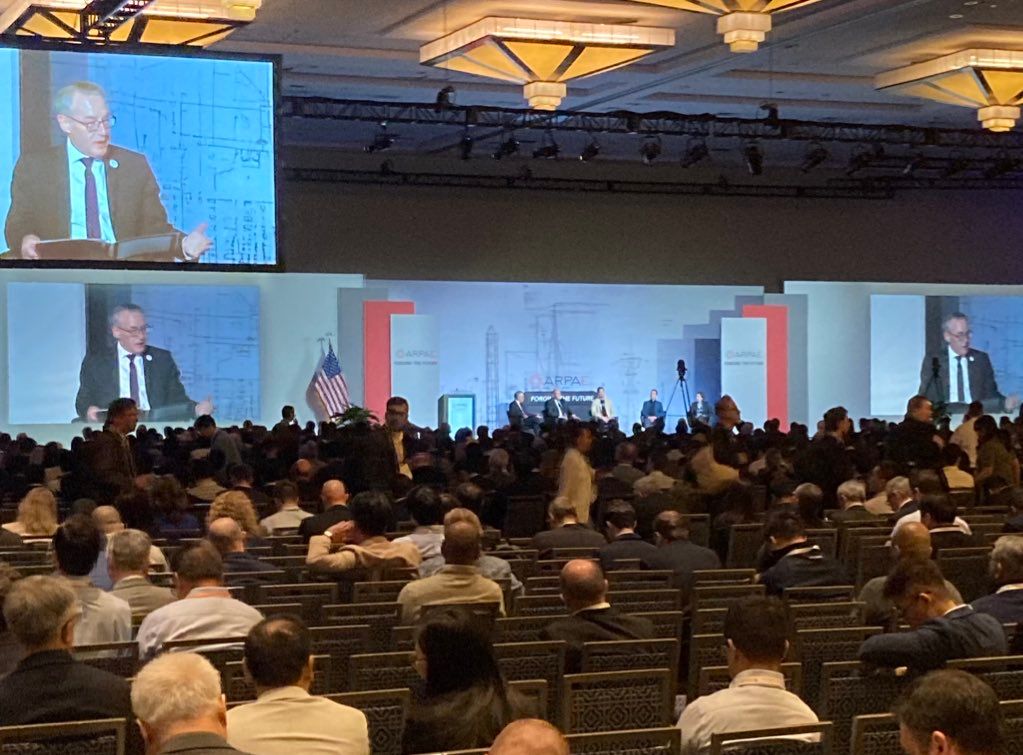
Chaos might be the watchword of our political reality, but it hasn’t distracted the ecosystem around ARPA-E from forging our future. At a gathering of some of the brightest minds in the country, there was no diminished commitment to finding clean and affordable baseload sources of energy, cleaner ways to manufacture, and less harmful ways to extract minerals from the earth, among other initiatives.
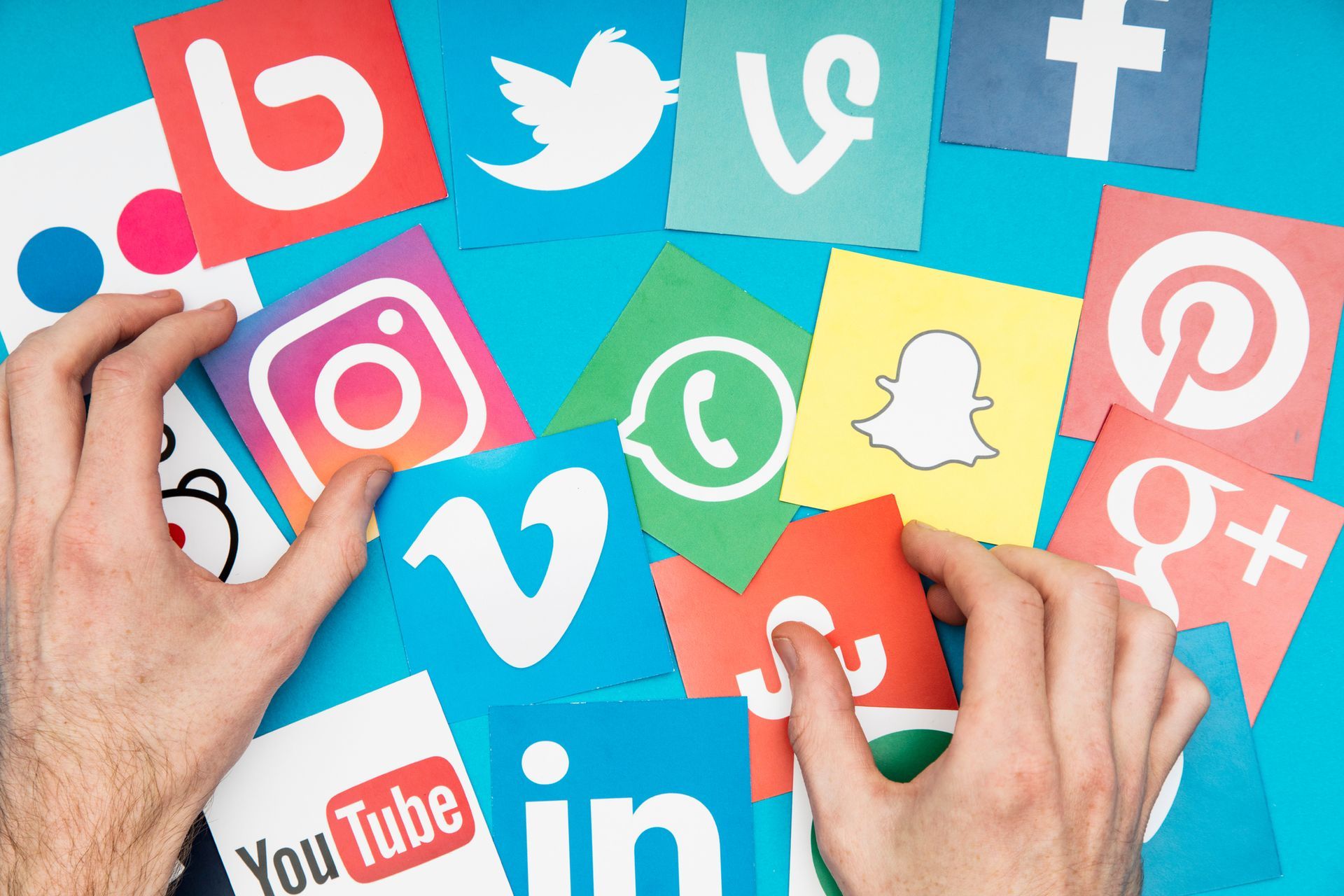
Where Should Cleantech Companies Focus Their Social Media Efforts?
Not every cleantech startup has the buzz of AI or fusion energy, but that doesn’t mean you can’t build an engaged audience. The key? Niching down and choosing the right platform for your goals.
📢 Looking for investors? LinkedIn is a must.
⚡ Want to stay in policy conversations? Twitter (X) still holds power.
🎥 Have a visually compelling product? Instagram & YouTube can showcase it best.
Instead of spreading yourself too thin, focus your efforts where they matter most. Ready to refine your strategy?

One of the most common misconceptions among startups, especially in cleantech, is the belief that a small audience requires less communication. For example, a startup with an investment from a major company like Shell might think their only necessary conversations are with oil majors interested in carbon capture for PR or regulatory reasons. While this may seem like an efficient focus, it is both untrue and risky. Regardless of whether your audience is 10 or 1,000, consistent and meaningful communication is critical to building trust, fostering growth, and managing risks. Let’s explore why this approach is essential and how diversifying your communication strategies can future-proof your business. Effective Communication Builds Trust and Transparency Startups thrive on their ability to build and maintain trust with customers, partners, and stakeholders. Consistent communication creates an open dialogue that fosters transparency and collaboration—two ingredients vital for long-term success. A recent Entrepreneur article highlights the importance of effective communication in startups, stating that it sets the tone for a company’s culture and helps establish trust and collaboration within its ecosystem. Without regular touchpoints, even the strongest relationships can falter, leading to missed opportunities or misunderstandings. You can find the full article here . Over-Reliance on a Small Client Base is Risky Business Relying on a limited number of clients, no matter how influential they may be, is inherently risky. Suppose a cleantech startup focuses solely on a handful of oil majors for their carbon capture technology. What happens if none of these companies choose their solution? The business becomes vulnerable to financial instability and limited growth opportunities. An analysis by Finro Financial Consulting warns against customer concentration risks, explaining that startups must diversify their client base to ensure resilience. Landing large clients may validate market demand, but without diversification, a business becomes highly susceptible to market volatility. Diversifying your audience not only mitigates risk but also opens new growth opportunities. Read the full analysis here . Diverse Communication Creates Resilience Consistent outreach isn’t just about maintaining existing relationships—it’s about creating new ones. Startups that regularly communicate with a variety of audiences, including potential clients, investors, and stakeholders, position themselves as thought leaders and innovators in their field. A piece from Startup Dreamers emphasizes the role of open and regular communication in fostering transparency and collaboration. By keeping all stakeholders informed and engaged, startups can generate collective solutions to challenges and cultivate stronger partnerships. Read the full article . Conclusion: Always Communicate, Always Engage Even if your customer base seems small or specific, regular communication is essential to building trust, reducing risk, and creating opportunities for growth. Whether you’re engaging with current clients, reaching out to potential partners, or maintaining a public presence, consistent communication keeps your cleantech startup top of mind and resilient in an ever-changing market. Don’t let a limited audience limit your success. Build a strategy that values communication as much as innovation, and you’ll see the impact across your business.

Securing funding in the cleantech industry has never been easy, and the stakes are even higher in today’s competitive environment. Global investment in climate tech has dropped to its lowest point in four years, according to Crunchbase. Yet, late-stage funding for transformative solutions like Pacific Fusion’s $900 million and Intersect Power’s $800 million demonstrates that investors are still willing to back compelling opportunities. The key? Positioning your startup as the must-have player in the cleantech space. This blog outlines actionable strategies for cleantech startups to not just attract attention but to win over investors and secure the funding they need to scale. 1. Solve a Specific, High-Stakes Problem Cleantech investors aren’t just looking for disruption—they’re looking for solutions to pressing, real-world problems. Startups that address urgent needs like regulatory compliance, supply chain disruptions, or rising energy costs are far more likely to capture investor interest. Key Strategies: • Frame the Problem Clearly: Use data to highlight the severity of the problem and its relevance to your target audience. • Demonstrate Market Need: Show how your technology transitions from a “nice-to-have” to a “must-have” in your market. Example: One of my favorite cleantech startups is a company called Steelhead Composites. They are a pioneer in the field of hydrogen storage components. To anyone who’s involved with the hydrogen economy, it’s well known that storage and transport are keys to unlocking its potential for road transport, maritime, and aerospace. They need only one PowerPoint slide to explain the problem they solve for a nascent trillion dollar industry. 2. Share a Compelling Story While data is crucial, it’s your story that hooks investors. A strong narrative explains why your company exists, who you’re helping, and how you’re creating impact. Investors don’t just want to fund technology; they want to fund a vision. Key Strategies: • Humanize Your Mission: Share the personal or professional experiences that inspired your startup. • Utilize All Five Senses: If your technology solves an air pollution problem, your audience needs to smell it. If it’s a water pollution problem you’re solving, remind your audience what foul water tastes like. While we are a visual society, it shouldn’t preclude using the other four senses to paint a picture. • Act Locally, Think Globally: Tie your mission to the local impacts it’s combatting because your audience will understand its implications intuitively. Yes, your clean technology might be solving a global problem, but that’s an abstraction, even to impact investors. It’s one of the reasons government action on climate change has moved at a snail’s pace. Example: Summit Nanotech has a backstory that’s hard to top—literally. The CEO was scaling K2 in the Himalayas when she noticed that even a Tibetan Monk had a smartphone. It made her realize the scale of need for lithium in the coming decades so she got to work and patented a more sustainable process to extract lithium, a notoriously dirty and geopolitically dangerous industry. They’ve raised over $65 million so far. 3. Prove Scalability and Market Potential Cleantech investors want to see that your technology can go beyond a pilot project. Scalability isn’t just about technology—it’s about market demand, integration ease, and potential for sustained growth. Key Strategies: • Show Market Size: Use credible data to demonstrate the total addressable market (TAM) for your solution. • Outline Scalability Plans: Explain how your technology integrates into existing infrastructure or processes. • Highlight Diversified Revenue Streams: Show how your solution appeals to multiple industries or applications. Example: Intersect Power’s funding success stemmed from its ability to scale renewable energy projects rapidly while serving diverse industries, making it a safer bet for long-term returns, which is why they’ve raised $8.9 billion. 4. Validate Your Solution with Metrics and Third Parties Startups can’t rely on promises alone—investors need proof. Third-party endorsements and early customer traction help de-risk the investment and build credibility. Many investors in the cleantech sector will openly say they invest in teams as much as they invest in technology, which is why seasoned advisors are often highlighted on startup company websites as much as the day-to-day team. Key Strategies: • Share Early Wins: Pilot projects, Letters of Intent (LOIs), or initial sales show demand for your solution. • Leverage External Validation: Highlight grants, partnerships, or accelerator backing to prove credibility. • Quantify Impact: Provide specific metrics showing the efficiency, savings, or sustainability gains of your solution. Example: The myriad of incubators and accelerators that exist around the country have become a metaphorical front door for cleantech startups looking for validation. Investors know that companies that have been through programs they offer have been schooled and tested on the finer points of running a company, and it lowers the barriers to further funding. 5. Address Risks with a Mitigation Plan Cleantech investors know the industry is fraught with challenges, from regulatory hurdles to market uncertainties. The last two years have been difficult for cleantech companies raising money in the private sector. Acknowledging these risks—and presenting a plan to overcome them—demonstrates your preparedness and resilience. Key Strategies: • Be Transparent: Clearly outline potential risks, such as policy changes or technical bottlenecks. • Provide Contingency Plans: Show how you’ll adapt to setbacks or shifting market conditions. • Highlight Strengths: Explain why your team or technology is uniquely suited to handle these challenges. Example Of What Not To Do: I met startup CEO at a conference last year who dismissed every one of my questions of how they would handle pitfalls with a wave of an assured hand and an overconfident assertion that he (and it’s always a he) had already thought of every scenario and that success was assured. He left the conference with his confidence in tact but without any new money to scale his company. 6. Build Relationships Before You Pitch Investors back people, not just ideas. Building relationships with potential funders before making an ask allows you to establish trust and refine your pitch based on their feedback. Key Strategies: • Engage Early: Attend industry events, join cleantech accelerators, and connect with investors long before you need funding. • Provide Updates: Share regular progress updates with potential investors, keeping your startup top-of-mind. This is where email marketing plays such an important part. It’s impossible to personally touch the entire universe of people who could fund your company, but a warm email keeps you top of mind. • Leverage Referrals: Use your network to secure warm introductions to aligned investors. Conclusion: Turning Interest into Investment Attracting cleantech investors requires more than a solid product—it demands a clear vision, tangible results, and a compelling story. By focusing on solving high-stakes problems, demonstrating scalability, and validating your solution with metrics and endorsements, your startup can stand out in a crowded field. With the right approach, you can turn investor interest into meaningful partnerships that propel your cleantech company toward a sustainable, impactful future. Start building those connections, refining your narrative, and showcasing your potential today. Investors are looking for transformative solutions—make sure they see yours as the one to back.
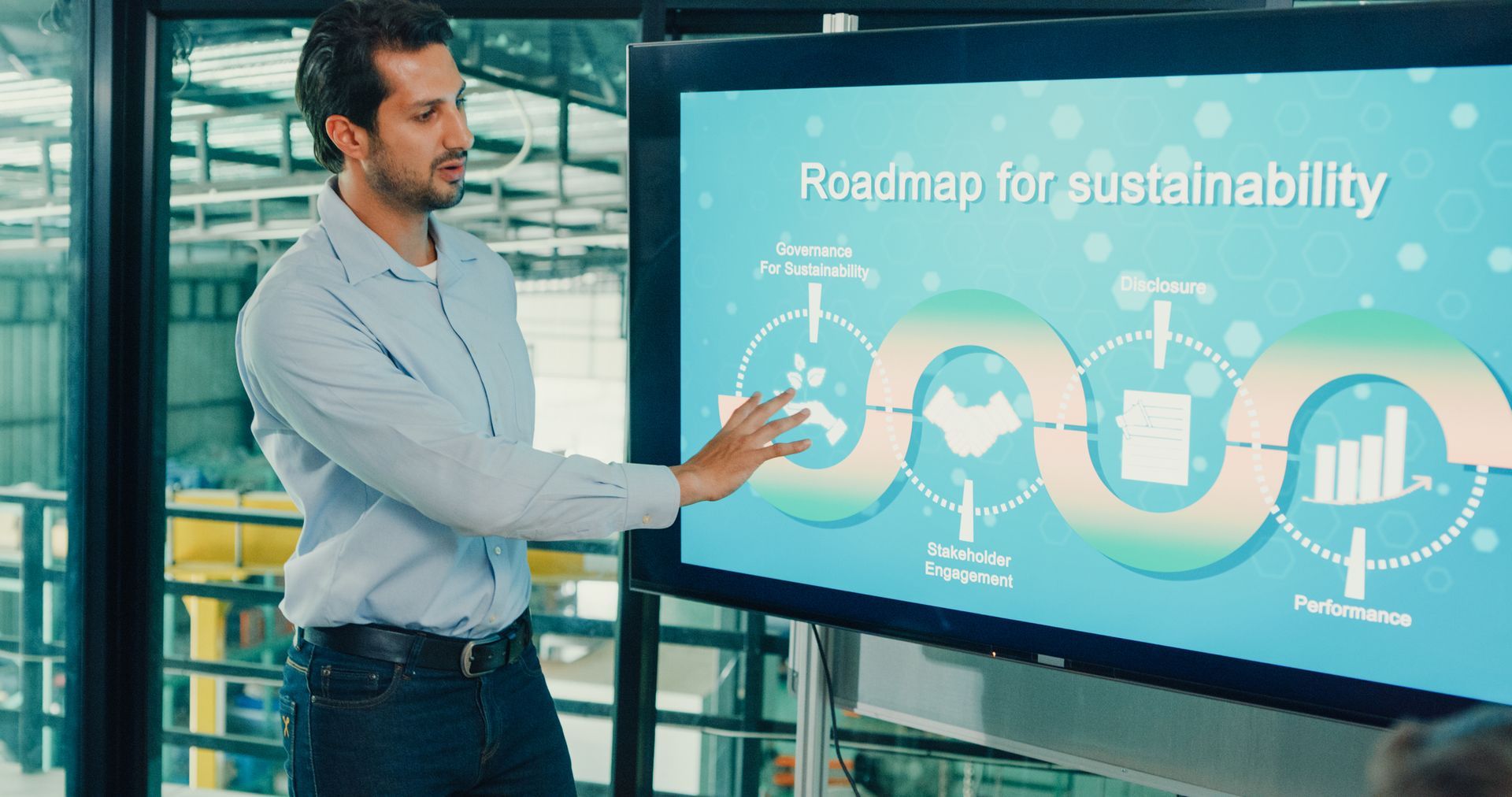
The cleantech industry is at a pivotal moment. With global urgency to address climate change, startups are uniquely positioned to deliver groundbreaking solutions. Yet, securing funding in this space has become more challenging. According to PwC’s State of Climate Tech 2024 report, climate tech financing has dropped by 29%, underscoring the heightened competition for investors’ attention and dollars. In this climate, having innovative technology is no longer enough. Investors need to see a cleantech startup that stands out—not just because of what it does, but because of the story it tells, the value it offers, and the real-world problem it solves. Let’s explore why these elements are more critical than ever for cleantech startups seeking funding. 1. The Power of a Compelling Story Why Storytelling Matters Humans connect with stories, not spreadsheets. A compelling story makes your startup memorable, helps communicate your mission, and creates an emotional connection with potential investors. For cleantech startups, the stakes are even higher. Investors aren’t just looking for financial returns—they’re looking for companies that align with their values and have the potential to create meaningful change. Your story is the bridge between your technology and the impact you aim to achieve. Elements of an Effective Cleantech Story • Mission-Driven Narrative: What inspired your startup? Share the "why" behind your journey and the larger purpose driving your work. • Human Impact: Illustrate how your technology improves lives or communities. Use testimonials, case studies, or vivid examples. • Vision for the Future: Paint a picture of the sustainable, better world your startup is helping to create. 2. A Unique Value Proposition That Stands Out Why a Unique Value Proposition (UVP) is Non-Negotiable In the crowded cleantech space, investors need to know why your solution is the one to back. Your UVP communicates what makes your startup different, better, and worth their investment. Questions to Define Your UVP • What problem does your technology solve? Be specific about the issue you’re addressing and its scale. Not every technology is sexy, but if you understand your audience’s motivation, they will swipe right. • Why can’t the alternatives compete? Go beyond cost-effectiveness, scalability, or superior performance because those advantages are ephemeral and diminish the value of your brand. • Who benefits, and how? Clearly define your target audience and the tangible outcomes they’ll experience. So often, I see cleantech startups tout aspirational benefits for society (which is great), but your investors need to why your specific target audience will buy your solution to convince them you have a business case. Crafting a Winning UVP • Be Specific: Avoid vague claims like "We help reduce emissions." Instead, say, "Our technology reduces industrial carbon emissions by 30% at half the cost of traditional methods." • Quantify Your Impact: Investors love seeing measurable potential like the size of the market. • Identify The Problem and The Urgency: Often impending government regulations drive the behavior of industries that are resistant to change. Deadlines to meet those new regulations give investors certainty that an industry is actively shopping for solutions. 3. Solving a Specific Problem: The Investor’s Perspective The Importance of Problem-Solution Fit Investors want to fund solutions to well-defined problems. They’re not just interested in the “cool factor” of your technology—they need to know it addresses a market need that people are willing to pay for. How to Showcase Problem-Solution Fit • Identify the Problem Clearly: Use data to show the severity of the problem and its relevance to key stakeholders. • Prove Market Demand: Customer interviews, beta tests, letters of interest (LOI’s), or market research that validates your solution. • Demonstrate Scalability: Investors want to know that your solution isn’t just effective in the lab, but can also be scaled to generate significant returns. • Validation: Investors are partial to the expertise of teams. Weaving the experience of the founders to the solution is an effective way to get in the door for a pitch. Trends Shaping Investor Expectations 1. AI-Driven Solutions As highlighted in PwC’s State of Climate Tech 2024 report, AI-driven technologies are gaining investor attention, particularly in areas like climate adaptation and resilience. Cleantech startups incorporating AI should emphasize how it enhances their solution’s efficiency, accuracy, or scalability. 2. Focus on Adaptation and Resilience Investors are increasingly looking for technologies that address the impacts of climate change, not just mitigation. Startups offering solutions for climate adaptation—like flood management or drought-resistant agriculture—should position themselves as essential players in building a resilient future. 3. Corporate Venture Capital Corporate investors are becoming a key funding source, particularly for mid-to-late-stage startups. On a large scale, we’re seeing companies like Microsoft and Google invest directly in clean energy sources to power their data centers rather than relying on middle men like utilities and governments that tend to move at a glacial pace. This trend has proved to public companies that they can solve their problems more directly by investing in technologies that solve their sustainability problems. Building Your Case for Funding 1. Combine Data with Storytellin g: While your story is the heart of your pitch, data provides the credibility investors need. Combine the two seamlessly to create a compelling and evidence-backed narrative. 2. Leverage Visuals : Pitch decks, infographics, and videos can make your message more impactful. Visuals help simplify complex concepts and keep investors engaged. 3. Prepare for Investor Questions : Be ready to address tough questions about your technology, market size, competition, and financial projections. Confidence and preparation go a long way in building trust. Real-World Examples of Fundraising Success 1. Climate Resilience Startup Secures $10M: A startup developing AI-powered flood prediction tools captured investor attention by framing its mission around saving lives and protecting infrastructure. Their UVP highlighted 95% prediction accuracy, and their funding round closed ahead of schedule. 2. Renewable Energy Innovator Wins Corporate Backing: A company creating low-cost, scalable wind turbines partnered with a major energy corporation. By aligning its solution with the corporation’s ESG goals, the startup secured $20M in funding. Conclusion: More Than Just Technology In today’s competitive funding landscape, cleantech startups must go beyond their technology to win over investors. A powerful story connects emotionally, a unique value proposition demonstrates your edge, and a clear problem-solving focus proves your relevance. Investors aren’t just looking for groundbreaking ideas—they’re looking for cleantech companies with the vision, strategy, and impact to change the world. By mastering these elements, you can position your startup as not just a great option but the only one worth their investment. Ready to refine your pitch and secure the funding you need? Start by crafting a story, defining your UVP, and highlighting the problem only your solution can solve. The future of your startup—and the planet—depends on it.

